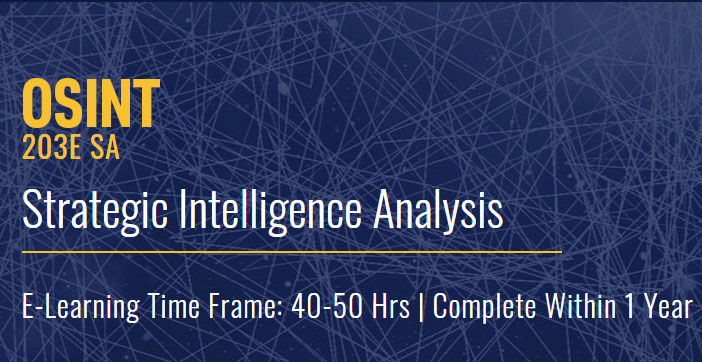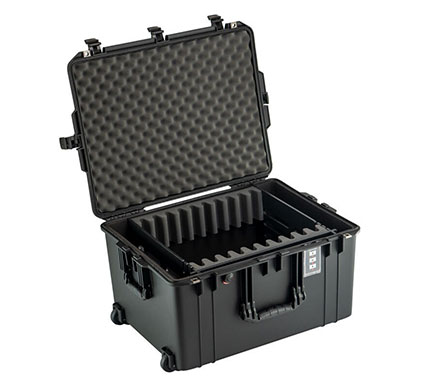
Strategic Intelligence Analysis is a two-level e-learning course, designed for professionals working in public sector enforcement, intelligence, national security, and regulatory compliance roles, or those aspiring to do so. Using a combination of online lesson materials and applied learning scenarios, the course provides an understanding and hands-on appreciation of the concepts, principles, and methods that inform strategic analysis tasks. Students will be equipped with the skills and knowledge required to effectively conceive, plan, and implement strategic analysis projects, and deliver impactful strategic advice to clients and other end users.
Strategic analysis is an intelligence-driven “enabler,” making significant contributions to the higher-end of an organization’s client base. That is to say, when the strategic analysis program is properly implemented, senior officials will benefit from intelligence products that are geared towards the shaping of strategies, policies, and plans, and development of insights to facilitate the management of corporate risk. Strategic analysis clients and end users can benefit from assessments that “map” the external threat environment, provide warning of emerging threats and strategic problems, and provide viable options for risk mitigation.
Level 1
- Introduction to strategic intelligence and strategic analysis
- Thinking skills for strategic analysis
- Overview of strategic analysis methodology issues
- Problem definition and task scoping
- Planning and managing the strategic analysis project
- Data collection and sourcing
- Evaluation, collation, and data management
- Data structuring techniques
- Analysis and development of analytic findings
- Strategic intelligence reporting
- Review of process and product
Level 2
- Exploratory analysis techniques
- Environmental scanning
- Futures analysis
- Decomposition and visualization techniques
- Hypothesis generation and testing techniques
- Application of statistical methods
- Cause and effect analysis
- Threat and risk analysis
- Challenge analysis techniques
- Decision support analysis
- Pulling it all together – effective strategic analysis outcomes
Technical Requirements
Students must have a computer capable of accessing:
- The World Wide Web
Each student must have a basic working knowledge of:
- Word Processing Software: Microsoft Word or equivalent
- Presentation Software: Microsoft PowerPoint or equivalent
- A Web Browser: Internet Explorer, Safari, chrome, Mozilla Firefox, or equivalent
- A PDF reader: Adobe Reader v7.0 or above. Download for free here.
Who Benefits?
- Analysts
- Analyst Supervisors, Managers
- Intelligence Managers
- Public Sector Planners
- Researchers
- Government Policy Officers
- Senior Investigators and Investigation Managers
- Military Intelligence Personnel
- National Security Officers
- Law Enforcement Personnel
- Government Regulators
- Counterterrorism Officials
- Security Personnel
- Legal Professionals
- Information Specialists



